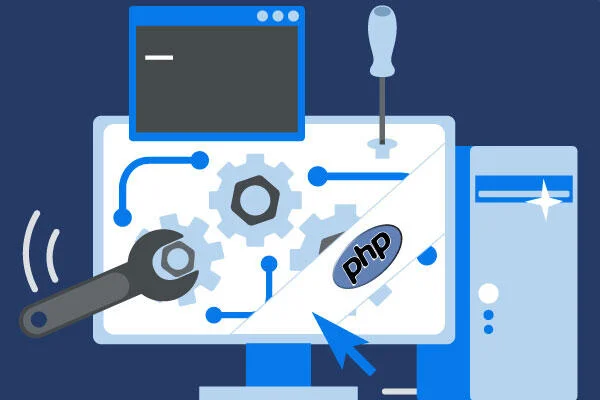Building scalable and secure PHP applications requires the right blend of best practices. Implementing the right processes, procedures, and protocols is key to ensuring the success of your app. In this article, we will discuss the basics of establishing a secure and scalable PHP application. We’ll first start by looking at three different types of applications that can be built with PHP. Then, we’ll discuss some of the techniques for ensuring that your application is secure and robust. Lastly, we’ll discuss the importance of critically assessing and improving your existing application’s security and scalability.
What Types of Applications Can You Build with PHP?
PHP is one of the most popular programming languages in the world. It is used to create dynamic webpages and is often referred to as a “server-side scripting language”. Its main purpose is to create web applications, which are made up of a combination of HTML, CSS, JavaScript, and PHP. As such, it is widely used to create the following types of applications:
-
Content Management Systems (CMS): This type of application enables users to easily add, edit, and delete content on their websites. Popular examples of CMS systems built with PHP include WordPress, Drupal, and Joomla.
-
Shopping Cart Applications: These are used to power ecommerce websites. Using an application like this makes it easier for customers to purchase items and pay for them online. PHP-based shopping cart applications include Magento, OpenCart, and Shopify.
-
Custom Applications: PHP can also be used to create custom applications for a variety of purposes. This could include anything from a customer relationship management (CRM) system to a messaging application or a file-sharing service.
These are just a few examples of the types of applications that can be built with PHP. Regardless of the type of app you’re building, it’s essential that you put the right security and scalability measures in place.
How to Secure and Scale Up Your PHP Application
Once you’ve decided on the type of application you’ll be building, you need to start thinking about how to ensure that it is secure and scalable. Here are some tips to help you in the process:
-
Update Your PHP Version: It’s important that you use the latest version of PHP, as newer versions often contain important security enhancements. You should also ensure that you have the latest security patches applied to your website. This can be done by using a third-party service or by manually updating the version of PHP on your server.
-
Implement Strong Authentication: Authentication helps you control who has access to your application. You should implement a multi-factor authentication system, which requires users to enter a username/password combination as well as verify their identity via a one-time code, fingerprint, or other authentication method.
-
Use Secure Transport Protocols: You should always use secure transport protocols such as HTTPS/TLS to send data over the web. This ensures that data is encrypted as it is transferred and helps protect it from being intercepted.
-
Use a Content Delivery Network (CDN): A CDN is a network of servers located in different geographic locations. It can help to improve the speed and performance of your application by caching content and serving it from the closest server to the user.
-
Implement Security Monitoring Tools: Security monitoring tools can help you identify any potential vulnerabilities and give you insight into how your application is being used. This can help you to take pre-emptive action if a potential attack is detected.
-
Monitor Performance and Scalability: Performance monitoring tools can help you identify any performance bottlenecks or scalability issues. This will enable you to proactively address any potential issues before they become a problem.
-
Use Hypertext Preprocessor (PHP): Hypertext Preprocessor (PHP) is the programming language used to create dynamic content. You should use the latest version of PHP and implement best practices to ensure that your code is secure and efficient.
-
Keep Data Secure: When dealing with user data, it’s important that you keep it secure. This means encrypting data before sending it to a database or storage device and also making sure that any backups are secure.
Building a secure and scalable PHP application requires a lot of work and dedication. You need to implement the right processes, procedures, and protocols to ensure that your application is both secure and robust. This requires a combination of best practices, including updating your PHP version, using secure transport protocols, and using a content delivery network. You also need to make sure that you are using the latest version of PHP and implementing best practices to ensure that your code is secure and efficient. Finally, it is important to implement security monitoring tools and keep an eye on performance and scalability. Doing these things will help you to ensure the success of your PHP application.

